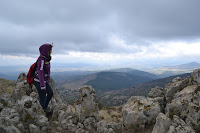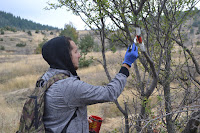When talking about
migrants, minorities and other vulnerable groups, the use of right
terminology is very important. But people who are not so familiar
with these terms get easily confused between migrant and
immigrant, refugee and asylum-seeker, national
and foreigner... To help you out with this struggle, let me
explain you some of the most important terms:
Migrant / Immigrant /
Emigrant
Migrant is a person
who was born in a foreign country, as a foreigner (regarding the
current host-country) and who has crossed a border to live in another
country. Often used term immigrant emphasizes the
host-country's point of view, where as emigrant can be used by
the country of origin. To take the whole process of emigration and
immigration into consideration, and not to forget that migration has
consequences for both countries (plus for the transit countries!), it
is preferably use the globalizing term migrant.
For example, if Abdou migrates from Senegal to
France, he is an emigrant in Senegal and an immigrant
in France, but globally we can call him a migrant.
Refugee / Asylum-seeker
Often people get confused
with terms migrant and refugee and seem to think that
being a refugee is somehow better than being a migrant.
In fact, everyone who moves from a country to another is a migrant,
where as those who try to seek asylum are also asylum-seekers
and only those who get granted asylum (according to UN's Convention
Relating to Refugee Status) are refugees. However, all of them
are migrants and not being able to obtain the refugee-status
does not mean that those migrants would not have serious reasons
having left their countries. Currently many NGO's have chosen to use
the term refugee when actually talking about
migrants/asylum-seekers because of the term migrant's
pejorative echo in many people's minds.
For example, if Mehmet moves
from Afghanistan to Sweden he is a migrant. If he seeks an
asylum in Sweden, he becomes an asylum seeker. If the asylum
grant gets approved he becomes a refugee. However, he remains
still a migrant as well.
National / Foreigner
The pair of words that
also creates confusion is national and foreigner and
they can be mixed up with the term immigrant too. National
is someone having the nationality/citizenship (passport, right to
vote etc.) of a country. Foreigner is someone not having these
rights, even if he lives in the country. As opposed to immigrant,
this is a status that might change; when a person immigrates to a
country, he usually is a foreigner in that country, but in
some years he might become a national. However, he remains
always an immigrant – that status does not depend on
nationality.
For example, if Alexander from Macedonia moves to Italy, he
is an immigrant in Italy and most likely a foreigner.
If after five years of living in Italy he manages to acquire Italian
nationality, he becomes a national. However, he is still an
immigrant.
Also, a good thing to note
is that nationality legally speaking does not have anything to do
with one's ethnic origin.
For example, most Albanians in Macedonia are Macedonians by
nationality and Albanians only by their ethnic origin.
Jannika



























